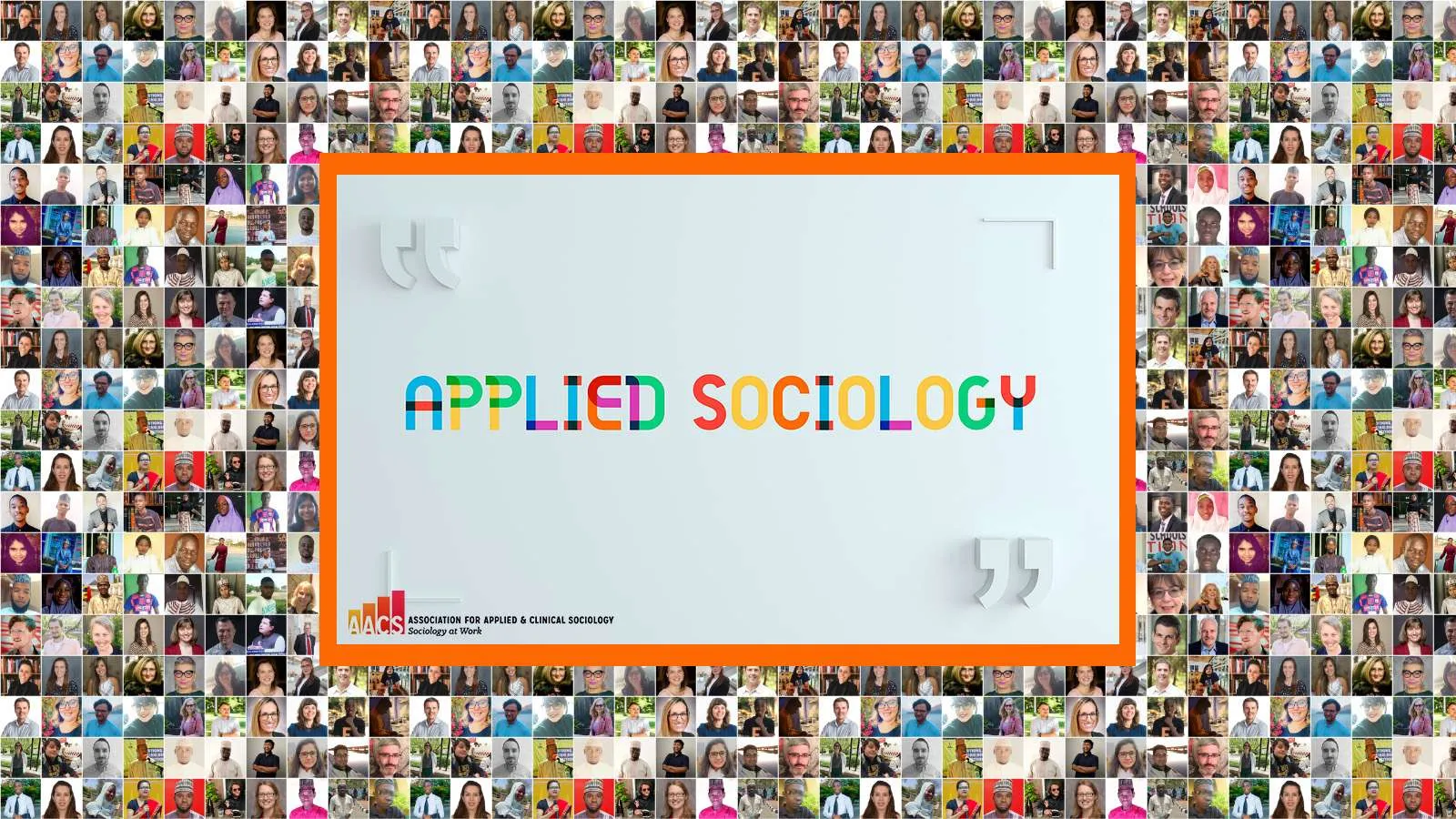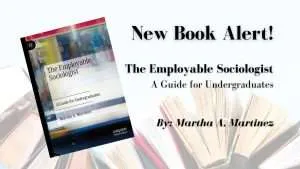On this page you will find a collection of sociology quotes from Applied and Clinical Sociologists. Each of these quotes was taken from an interview with these applied sociologists. You can read the full interviews on our Profiles in Applied and Clinical Sociology Project.
As always thanks to our partner, the Association for Applied and Clinical Sociology for sponsoring these interviews and quotes.
Sociology Quotes from Melissa Scardaville, PhD
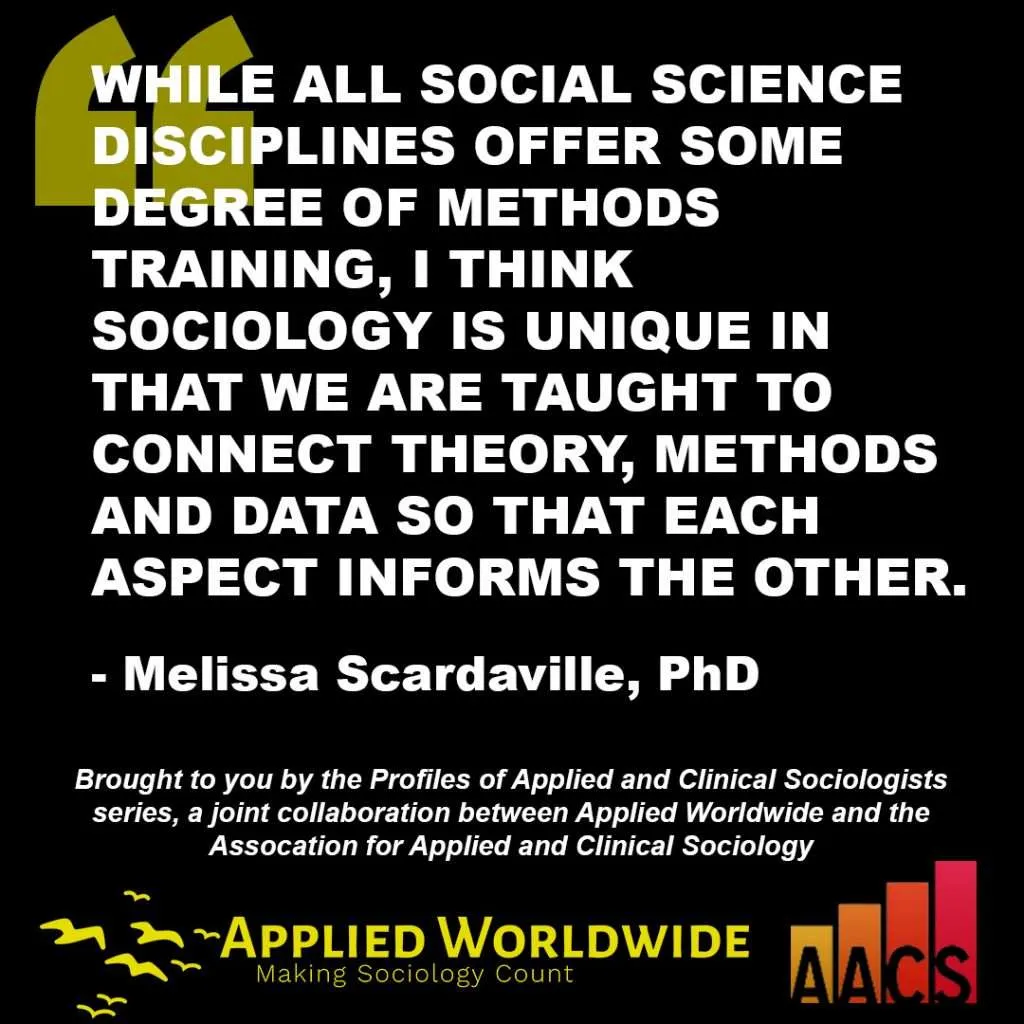
“While all social science disciplines offer some degree of methods training, I think sociology is unique in that we are taught to connect theory, methods, and data so that each aspect informs the other.” – Melissa Scardaville, PhD
Sociology Quote from Lorella Palazzo, PhD

“I apply my “Sociological Imagination” collaborating on projects usually led by clinicians or researchers trained in the biomedical sciences. My instinct to always look at context, systems, structural constraints, and power relations is distinctive and not always intuitive to others.”
Lorella Palazzo, PhD
Quote from Josh Packard, PhD

“Workplaces are fundamentally made up of groups these days, not individuals. It stands to reason, then, that we should be looking to the science of groups to help us guide our strategies and management techniques. That’s where we come in as sociologists.”
Josh Packard, PhD
Applied Sociology Quotes from Jackie Henke, PhD
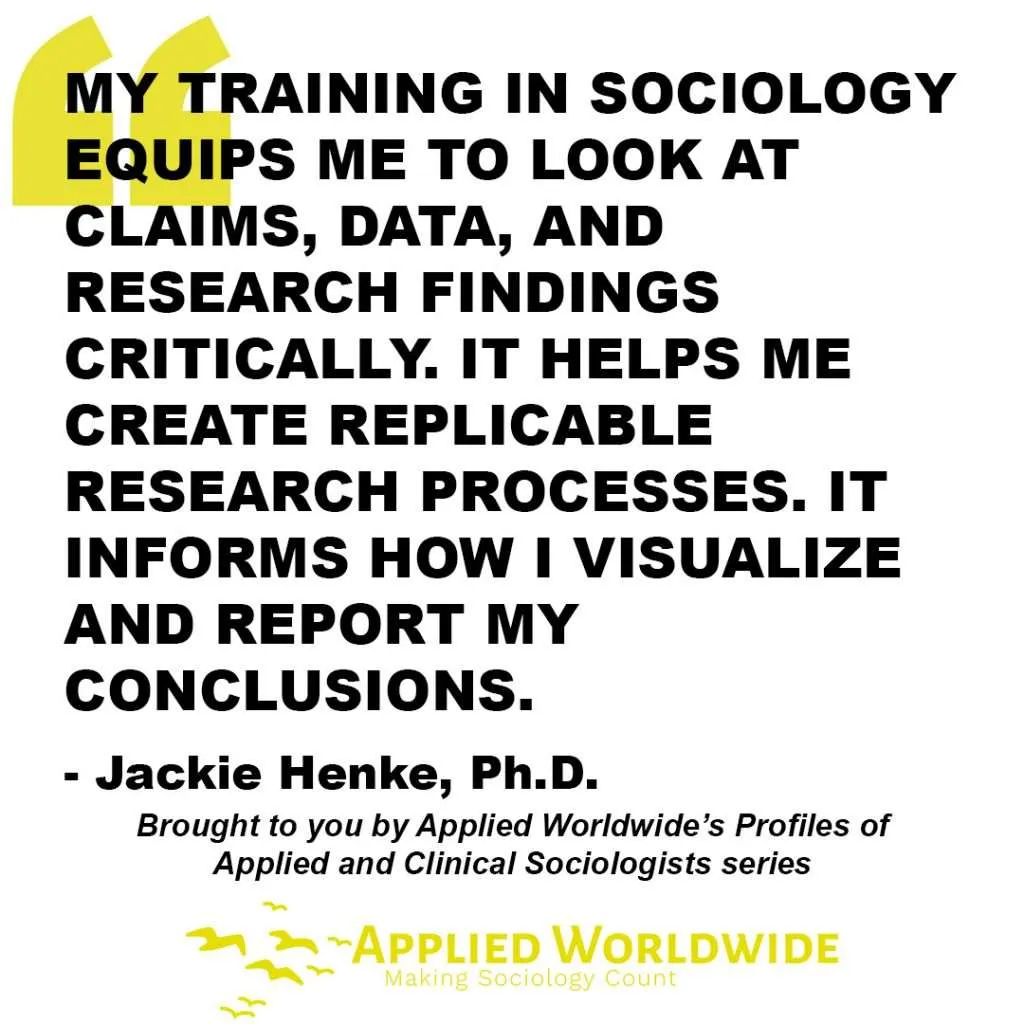
“My training in sociology equips me to look at claims, data, and research findings critically. It helps me create replicable research processes. It informs how I visualize and report my conclusions.”
Jackie Henke, PhD
Sociology Quotes from Lauren Gant

“Our goal is to improve efficiency and effectiveness of criminal justice systems in Colorado. Using sociological theory and methods inform every stage of the research process including data collection, data analysis, and report writing.”
Lauren Gant, MA
Sociology Quotes from Melissa S. Fry, PhD

“Much of my work uses systems thinking to map and identify leverage points in community systems. My work builds on the work of Jane Addams and W.E.B. DuBois, honoring practice and community-based knowledge.”
Melissa S. Fry, PhD
Professor Robert Dingwall Quote
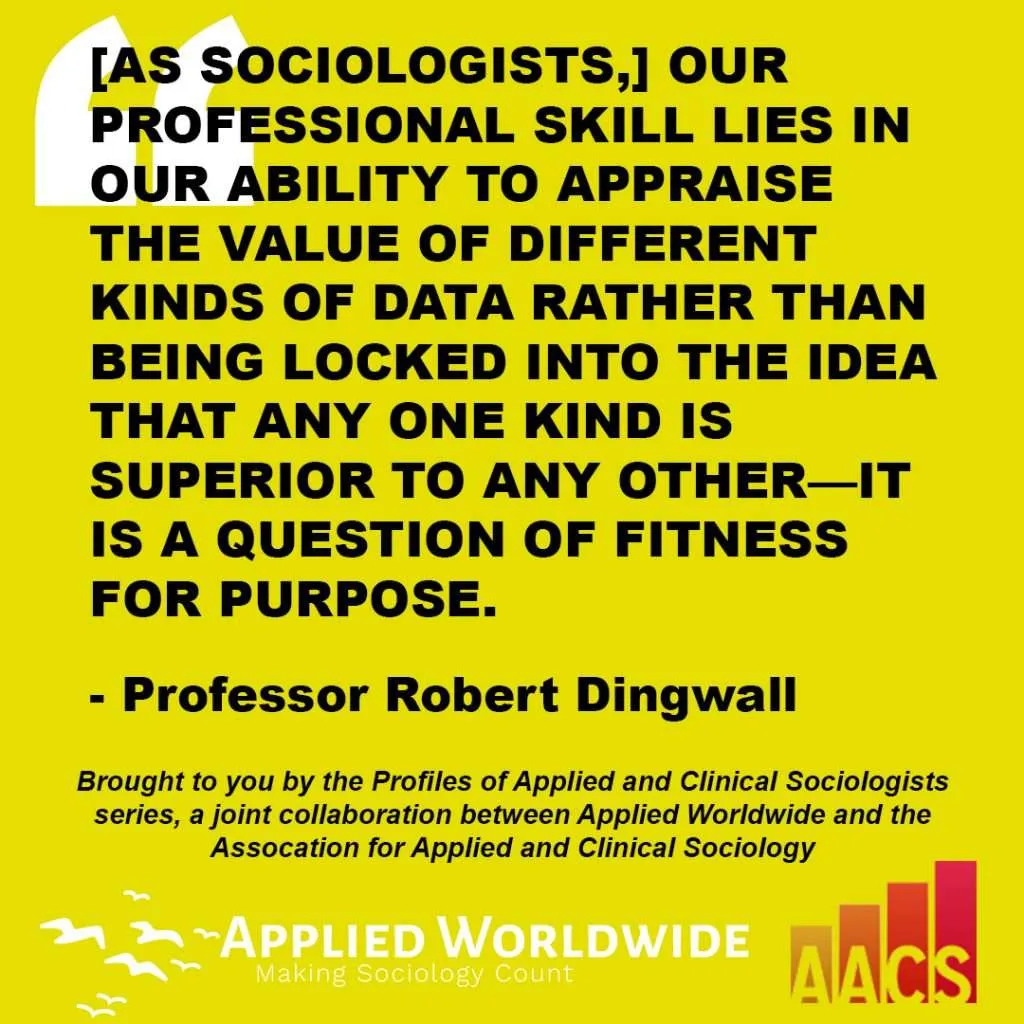
“Our professional skill lies in our ability to appraise the value of different kinds of data rather than being locked into the idea that any one kind is superior to any other. It is a question of fitness of purpose.”
Professor Robert Dingwall
Sociology Quotes from Gary David, PhD

“As a certified applied and clinical sociologist, I use a systems approach to generate analytical insights, design solutions, and create client value.”
Gary David, PhD
Sara J. Cumming Quote
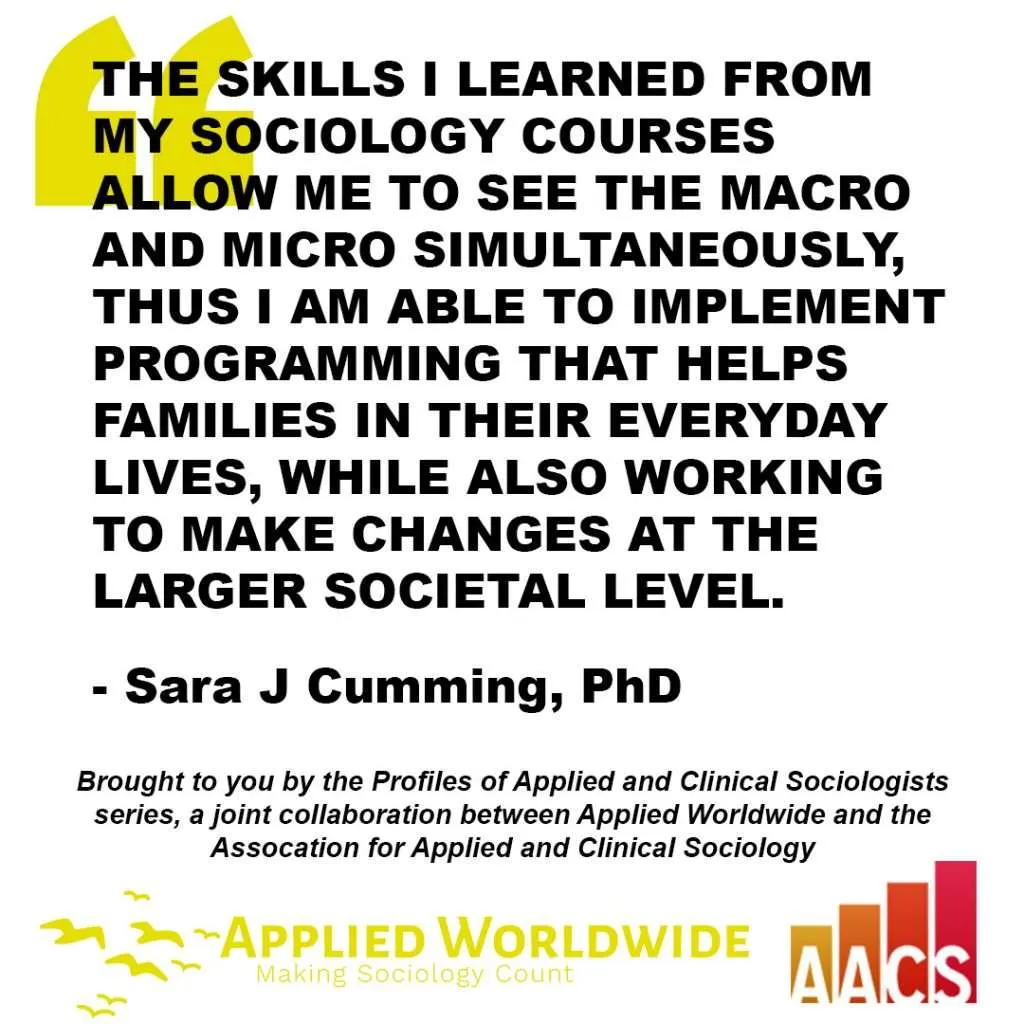
“The skills I learned from my sociology courses allow me to see the macro and micro simultaneously, thus I am able to implement programming that helps families in their everyday lives, while also working to make changes at the larger societal level.”
Sara J. Cumming, PhD
Quote from Andrew C Cohen
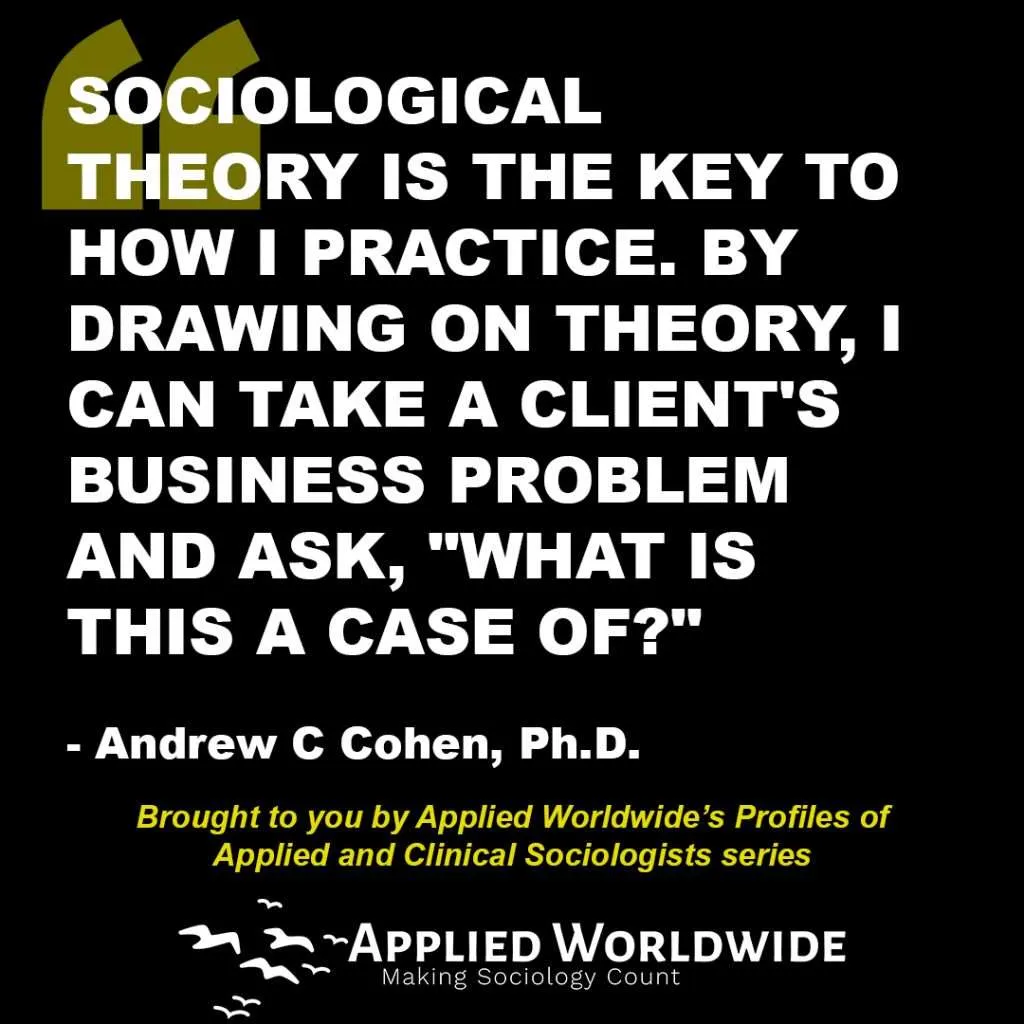
Sociological theory is the key to how I practice. By drawing on theory, I can take a client’s business problem and ask, “What is this a case of?””
Andrew C. Cohen, PhD
Sociology Quotes from Anthony F. Buono, PhD

“Sociology provides a useful lens to look at the world. Throughout my career, I have been guided by the notion that people have agency, that once they develop a fuller understanding of the various forces that surround them, they are in the best position to make reasonable choices about moving forward.”
Anthony F. Buono, PhD
Applied Sociology Quotes from Miriam Boeri, PhD
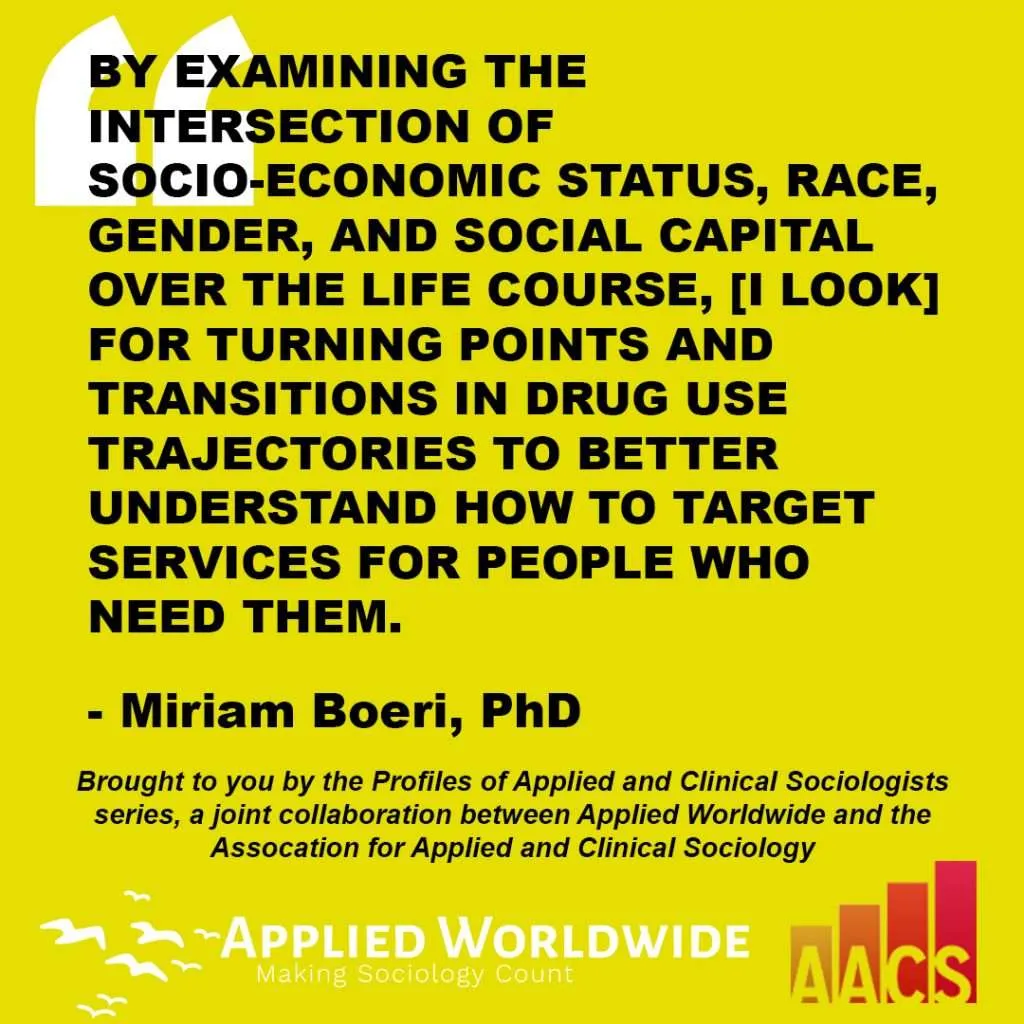
“By examining the intersection of socio-economic status, race, gender, and social capital over the life course, I look for turning points and transitions in drug use trajectories to better understand how to target services for people who need them.”
Miriam Boeri, PhD
Sociology Quote from Johanna P. Bishop
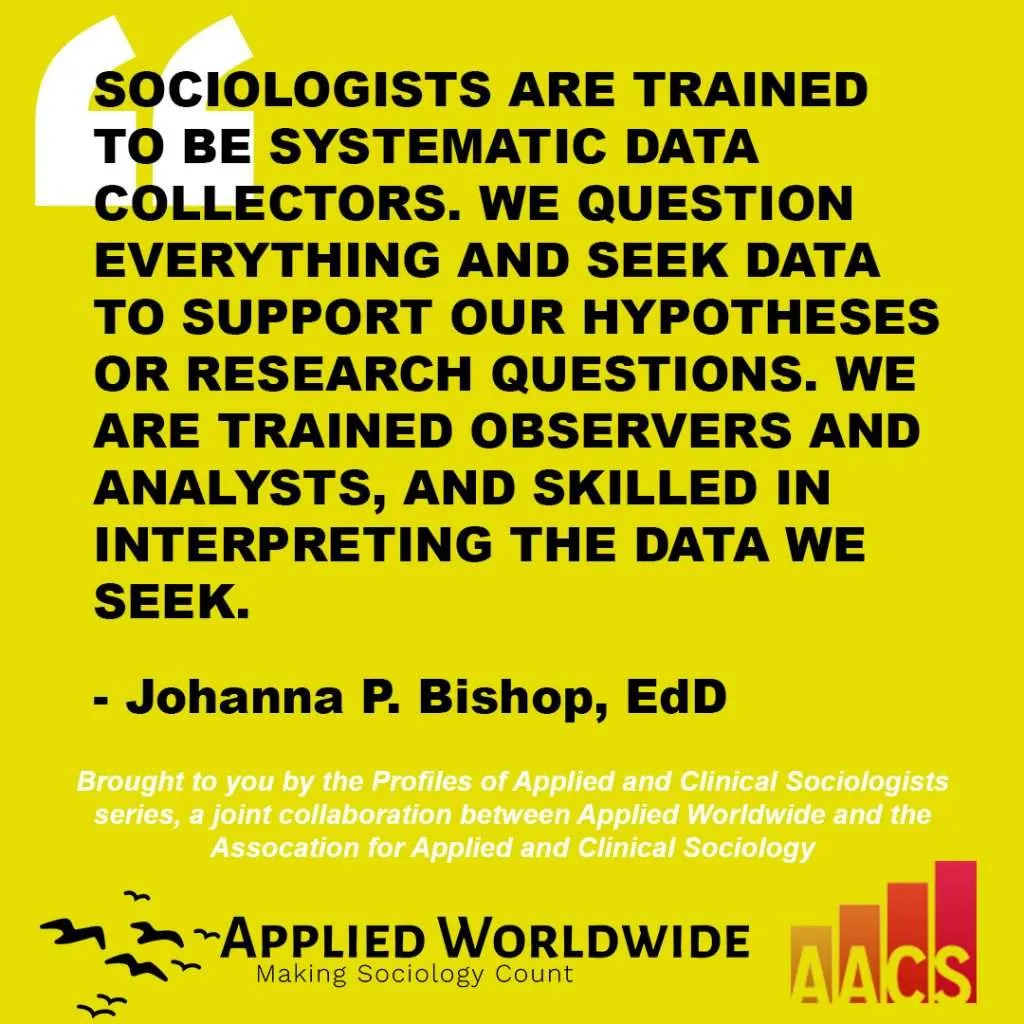
“Sociologists are trained to be systematic data collectors. We question everything and seek data to support our hypotheses or research questions. We are trained observers and analysts, and skilled in interpreting the data we seek.”
Johanna P. Bishop, PhD

